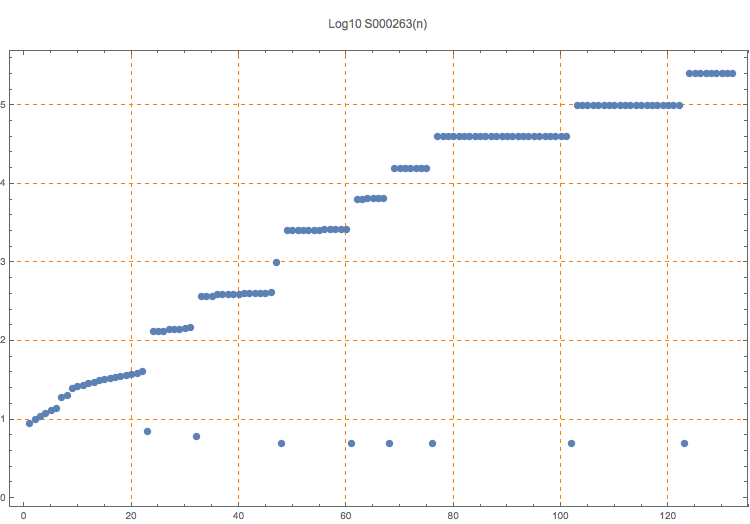Irregular triangle of numbers x such that primepi(n * x) = n + x.
9, 10, 11, 12, 13, 14, 19, 20, 25, 26, 27, 29, 30, 31, 32, 33, 34, 35, 36, 37, 39, 41, 7, 131, 132, 133, 138, 139, 140, 144, 148, 6, 368, 369, 371, 385, 386, 387, 395, 396, 397, 399, 400, 402, 403, 409, 998, 5, 2551, 2554, 2555, 2556, 2557, 2583, 2584, 2589
5
For n = 8, there appears to be only one number: 998.
T. D. Noe, Plot of rows 5 to 14
T. D. Noe, Table of rows 5 to 14
S. W. Golomb, On the ratio of N to pi(N), Amer. Math. Monthly 69 (1962), pp. 36-37.
Zhi-Wei Sun, A new theorem on the prime-counting function, arVix 1409.5685 (Sep 19 2014)
(Mma) Table[Select[Range[1000000], PrimePi[n*#] == n + # &], {n, 5, 14}]
Cf. A038626 (smallest value of pi(x) having n*pi(x) = x), S000264 (number of such numbers).
nonn,tabf
T. D. Noe, Sep 22 2014
